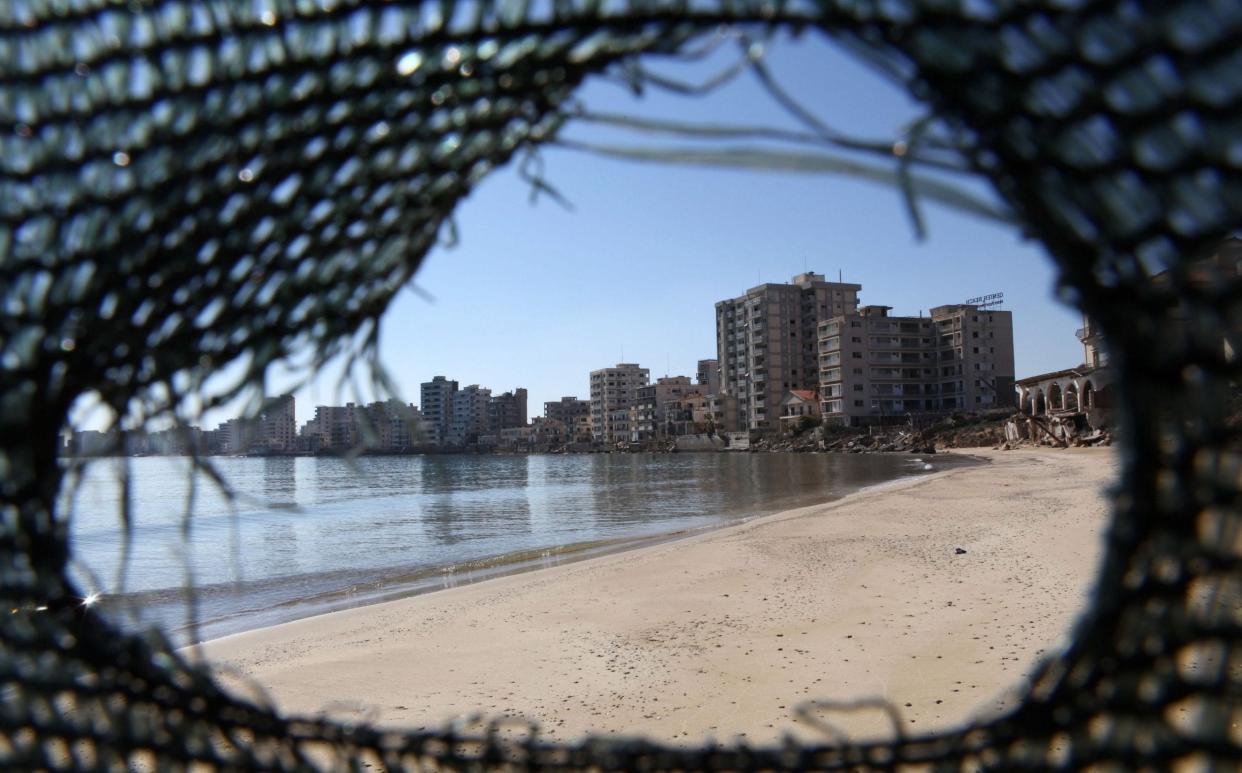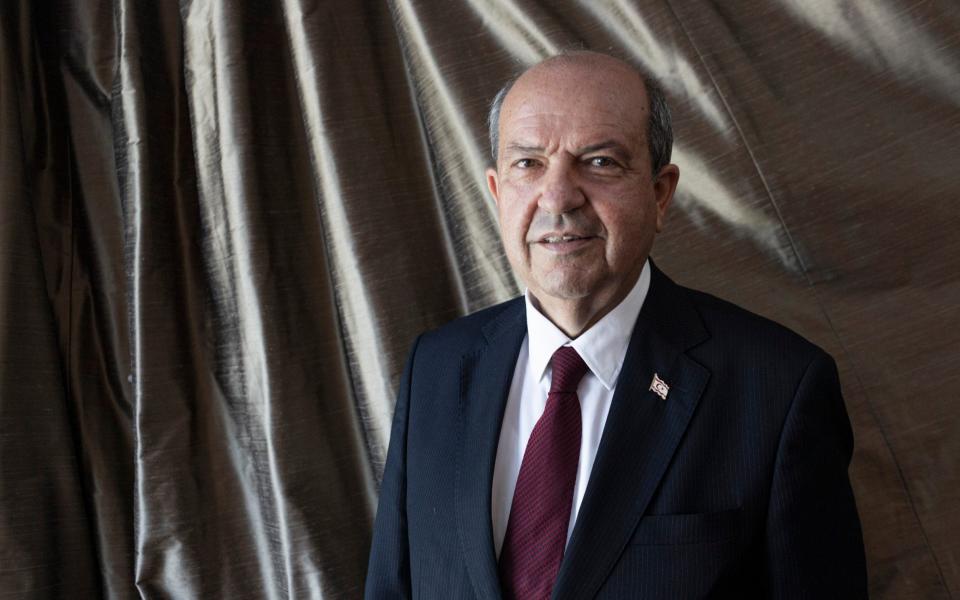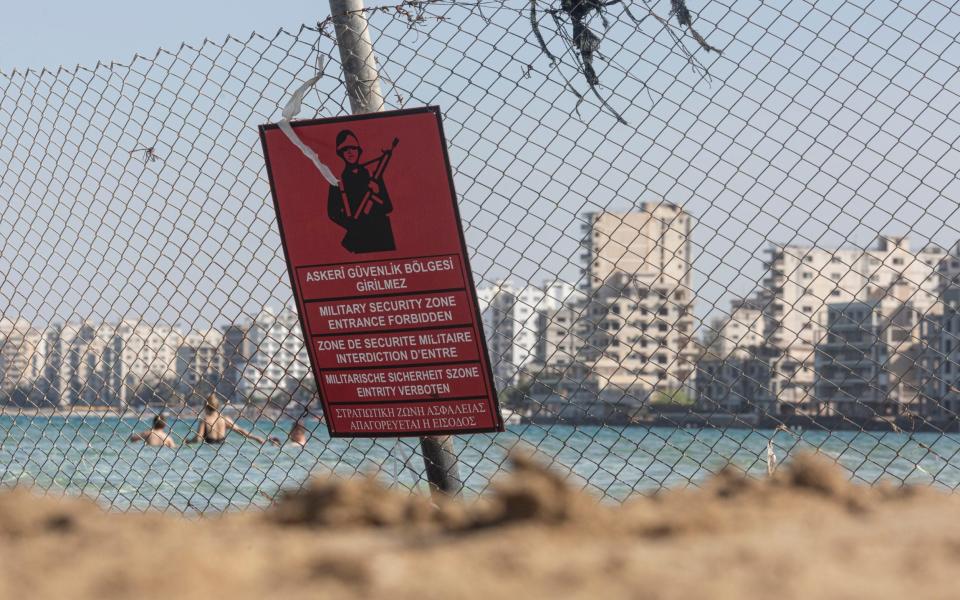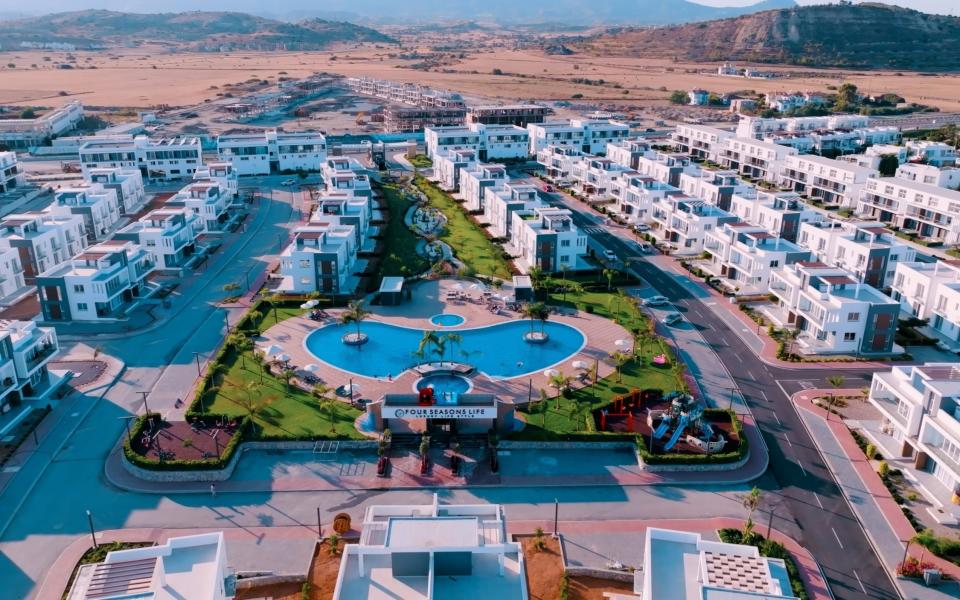One tiny mistake could turn Cyprus into a new Gaza

Turkey will not accept a one-state solution for Cyprus and a “little flare-up” on the divided island could spark a conflict similar to those in Gaza and Ukraine, the leader of the breakaway north has warned ahead of a meeting with the head of the UN.
A mistake or misunderstanding such as the shooting of a Turkish soldier on the Green Line that divides the two sides would provoke “a bomb” between the two populations, who have been at loggerheads for decades, said Ersin Tatar.
“If you shoot one Turkish soldier you will have 10,000 soldiers on the ground,” Mr Tatar, the Cambridge-educated president of the Turkish Republic of Northern Cyprus (TRNC), told The Telegraph in an interview at his colonial-era mansion in the divided capital of Nicosia.
“Everybody should be calm and reasonable. Turkish Cypriots are not alone – we have got 85 million Turks behind us and they are just 40 miles away.
“A little flare-up, that is what people are fearing. Look at what happened in Gaza. And before that, Ukraine. Before that, Bosnia.”
Mr Tatar’s warning comes ahead of his meeting with Antonio Guterres, the UN Secretary General, in New York on Friday, amid renewed efforts to solve the frozen conflict 50 years after it first erupted.
They are expected to discuss the work so far of Maria Angela Holguin Cuellar, a Colombian diplomat and Mr Guterres’ personal envoy, who has been sent to Cyprus to try to kickstart talks after years of stalemate.

Greek Cypriots want to see the island united under the flag of the Republic of Cyprus. That would involve Turkey giving back the northern territory it seized during what Turkish Cypriots call “the intervention” in response to a Greek military coup and attempted union with Greece in 1974.
The Greek Cypriots regard the TRNC as a rogue state and say the tens of thousands of Turkish troops who are stationed there must leave the island. The breakaway Turkish Republic of Northern Cyprus is not recognised by any country other than Turkey.
“I will spare no effort to realise the common dream of reunification,” Nikos Christodoulides, the president of the internationally recognised Republic of Cyprus, said recently.
That plan is backed by Britain, the former colonial power, as well as the UN, the United States and the EU, all of whom have spent decades trying to bring the two sides together for negotiations.
But Mr Tatar, who was elected in 2020, dismissed such efforts as a “waste of time”.
“That’s all past. All those opportunities have been exhausted,” he said.
“How can you unite an island like this after so many years? You cannot possibly unite Cyprus. You have to face the facts and accept reality.”
Two-state solution
The only option now is a two-state solution in which TRNC is accepted as an independent state, said Mr Tatar, a hardline nationalist who is close to Recep Tayyip Erdoğan, the authoritarian leader of Turkey.
“Since 1974 we have had two states, two regions, two sovereign powers in Cyprus living side by side, coexisting. The only way forward is a two-state solution,” he said.
“Recognition might take time but as time goes by, we consolidate more.”
He suggested that Azerbaijan, Pakistan and Bangladesh may soon recognise the TRNC as an independent country.
At stake is peace on the island of 1.2 million people, where the British army has two key military bases under UK sovereign control, RAF Akrotiri and Dhekelia.
The bases provide the UK with a permanent presence in the Eastern Mediterranean and offer a staging post for military and humanitarian operations.
Greece and Turkey are also both members of Nato.
Recent clashes
Although the island is considered safe to travel around, there have been incidents of violence recently.
In February, a group of eight Turkish Cypriot students were allegedly attacked with sticks and stones by Greek Cypriots during a trip to the Troodos Mountains in the south.
Last August, several UN peacekeepers, including British soldiers, were injured in a clash with Turkish Cypriots who were trying to build a new road to a village in the buffer zone that divides the island.
“We don’t want a clash and they [Greek Cypriots] shouldn’t want a clash,” said Mr Tatar.
“They have five million tourists visiting them each year, especially from the UK. If there is a bomb going off – pop! – not one tourist will come. They will go bankrupt.”
Cyprus has become one of the world’s most intractable diplomatic problems, with each side blaming the other for the failure to find a settlement.
Amid decades of animosity, the two sides argue over how they will share the huge reserves of offshore oil and gas in Cypriot waters as well as the future of Varosha, the once glamorous beach resort that was abandoned by Greek Cypriots and occupied by the Turks during the war in 1974.

For 50 years it has been a ghost town, its perimeter guarded by barbed wire and Turkish troops while the once glitzy hotels and restaurants that line a long sweep of golden beach slowly decay.
In 2020, the Turkish Cypriots unilaterally opened up part of the ghost town, to the fury of the Greek Cypriots, who owned most of the property in the area.
The Turkish Cypriots want to develop the abandoned resort, despite a UN resolution condemning any attempt to resettle it by anyone other than the Greek Cypriots who were forced out half a century ago.
Turkish Cypriots complain bitterly that they are subject to trade embargos and travel restrictions – it is only possible to fly to Northern Cyprus via Istanbul, for instance, a hassle which deters many potential tourists.
That will not change until there is a solution to the conflict, however.

James Ker-Lindsay, a British expert on Cyprus from the London School of Economics, said a federal, unified state remains the only viable solution for Cyprus and that the chances of the TRNC being recognised as an independent country by the rest of the world are zero.
“It’s not going to happen. In the context of everything we are seeing in Ukraine, the EU and US will not want to be seen to legitimise territorial changes that took place as a result of military action.”
But it is not just politicians from the north who feel that the push for a unified island is now a hopeless cause.
Some of the 15,000 British expats living in the TRNC also sympathise with the Turkish Cypriots.
Many of them live in the mountains overlooking the ancient harbour town of Kyrenia, where they look after the old British Cemetery and a memorial to the 371 British servicemen who lost their lives in the late 1950s during clashes with EOKA, the Greek Cypriot nationalist guerilla organisation that fought against British rule.
“The Turkish Cypriots have tried, they really have. I think the two-state solution is now the only way,” said Peter Wilkins, a former police officer from London who moved to the island eight years ago.
Mike Diplock, a retired policeman and a member of the British Residents Society who has lived in Northern Cyprus since 2007, said: “After such a long time, the federal arrangement is just not going to work. You can’t keep flogging a dead horse.”

